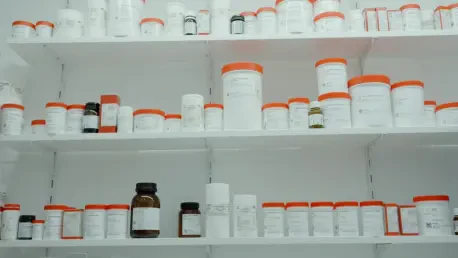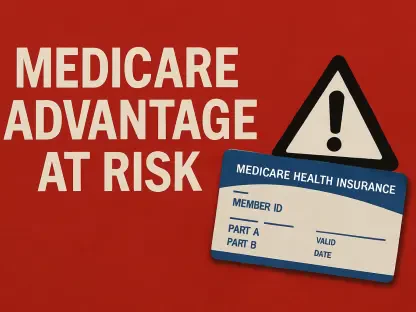Examining the Potential for Enhanced Domestic Drug Production
The Trump administration’s decision to investigate the impact of pharmaceutical imports on national security has sparked a significant discussion regarding the potential imposition of tariffs. This probe aims to evaluate whether these measures could bolster U.S. drug manufacturing by reducing reliance on overseas suppliers. Various complexities and industry insights suggest a nuanced view of the potential outcomes of such tariffs.
Background of Pharmaceutical Import Reliance
The dependency of the U.S. pharmaceutical industry on international suppliers is deeply rooted. Over the years, countries like China and India have become key providers of active pharmaceutical ingredients (APIs) due to their cost-effectiveness and specialized capabilities. The implementation of Section 232 tariffs on steel and aluminum in prior years exemplifies a possible template for similar actions within the pharmaceutical sector. This context is vital for understanding the stakes involved in reshoring drug manufacturing to the U.S.
Strategic Analysis of Economic and Industry Impact
Evaluating Financial Burden and Economic Gains
Introducing tariffs on pharmaceutical imports could yield a mix of benefits and challenges. Potential incentives for domestic drug production might create jobs and enhance national security. Conversely, tariffs could financially strain pharmaceutical companies, reducing the resources available for research and development. This tension is particularly pronounced for generic drug manufacturers operating with narrow profit margins, potentially impacting the availability and affordability of essential medications.
Global Models and Comparative Strategies
Several countries exemplify diverse approaches to securing their pharmaceutical supply chains. For example, Switzerland and Ireland have invested heavily in local manufacturing while maintaining global integration. The U.S. could adapt these strategies, balancing global collaboration with robust domestic production. Emerging trends in biopharmaceuticals and advanced manufacturing techniques will be critical in shaping a resilient U.S. pharmaceutical industry.
Addressing Misconceptions and Real-world Complexities
It is a misconception that imposing tariffs will rapidly revitalize U.S. drug production. Building new manufacturing facilities that comply with stringent regulatory standards is a complex and prolonged process. Additionally, regional differences, such as the availability of skilled labor and necessary infrastructure, play crucial roles. Experts highlight that achieving long-term self-sufficiency in drug production requires a multifaceted approach, integrating fiscal support, regulatory reforms, and strategic partnerships.
Anticipated Trends and Technological Innovations
The pharmaceutical industry stands on the brink of substantial transformations through technological advancements like automation and artificial intelligence, revolutionizing drug development and manufacturing processes. Regulatory changes aimed at expediting approvals for high-demand drugs could further reshape the landscape. These innovations, combined with targeted policy measures, have the potential to reduce dependence on foreign suppliers and enhance the resilience of the U.S. drug supply chains.
Implications for Market Stakeholders
For industry stakeholders, understanding the ramifications of potential pharmaceutical tariffs is vital. Businesses may need to diversify supply chains, invest in new technologies, and form strategic partnerships to mitigate risks. Industry professionals should stay informed about evolving regulations and market conditions. Meanwhile, consumers can advocate for policies balancing the need for affordable medications with the imperative of ensuring national security.
Strategic Insights and Future Directions
An analysis of the potential tariffs on pharmaceutical imports reveals a landscape characterized by immediate economic impacts and broader implications for national security, technological progress, and global competition. The industry must navigate the complexities of reshoring drug production efficiently. The strategies and policies adopted now will be instrumental in shaping the future of the U.S. pharmaceutical industry, ensuring it remains resilient and responsive to public health demands.









